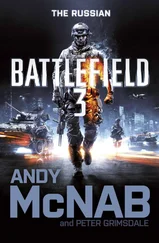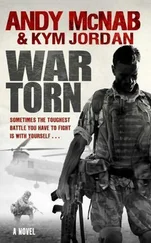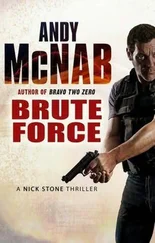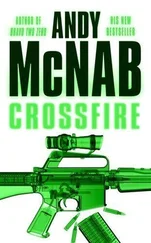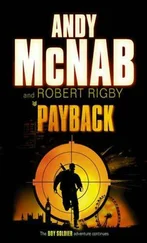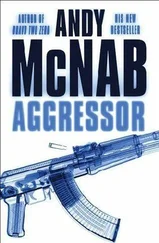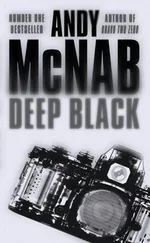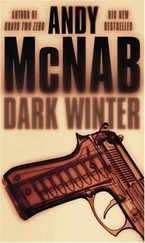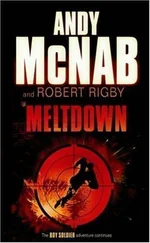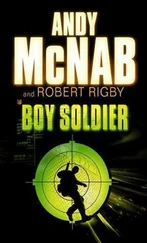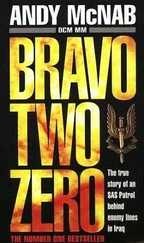Ali climbed the stairs ahead of me, our footsteps echoing off the walls as we made our way to the fifth floor.
‘Jim, it would please me greatly to work on your magazine.’ He started taking the steps two at a time. ‘And my sister Aisha would be so happy!’
Halfway up, Ali’s mobile beeped. He pulled it out of his pocket and flipped it open. ‘The signal is so bad here that I only pick up messages when I am on the second floor.’ He stopped to read the message, swore under his breath, then broke into a run.
I called after him, but he was already half a floor ahead of me, taking the steps in threes. I didn’t catch up with him until we reached the apartment door. ‘Ali?’
He was breathing hard and fumbling in his pocket for his keys. ‘It’s my sister, I-’
The door was opened by a girl in her late twenties, with heavy kohl-laden eyes and long dark hair. She wore frayed jeans and a T-shirt with a photograph of Bono just about to swallow a mike.
She glanced at me and cut away just as quickly to focus on Ali. She spoke fast, pulling him into the apartment as she did so. There was a look on her face – one that I knew from years of soldiering and a whole lot more of shitty times.
Somebody was either dead or dying.
I followed them along a dark corridor into a room with tall French windows. Dirty full-length net curtains blew into the room. There was a double bed with a large carved headboard set against the far wall. A ceiling fan that wobbled on its axis above it pressed the sheets against the outline of a body. Despite the open window and the fan, the room remained sweltering. Voices drifted up from the street below. The melons and flip-flops were still on special offer.
Ali jumped onto the bed and pulled back the sheets. His father was curled in the foetal position, a bag of bones in a pair of stained pyjama bottoms. Every inch of his sweat-covered skin seemed to be scarred with short, angry red welts, like someone had turned a sandblaster on him years ago.
The girl knelt by the pillow and mopped his face with a flannel. The fact that he was shivering was the only way you could tell that he was still alive.
The girl lifted one of his eyelids. From where I was, just behind her, I could see that the pupil was as small as a pinhead. His breathing was painfully shallow.
Ali felt for a pulse. His sister stood up and put her ear to their father’s chest. Their eyes met and she gave a small shake of the head before turning to a chest of drawers.
‘Ali, you need help? I am-’
The girl raised a hand to me as he moved back towards the bed. ‘No, but thank you. We know what to do.’
Ali manoeuvred his father into the recovery position.
The girl held a syringe to the light, flicked it with her finger to work the air up, and squirted a small jet of the fluid from the needle.
Ali took hold of his father’s wrist and tried to find a vein. He looked at his sister and shook his head. She just shoved the needle into his arm, below the shoulder joint, and depressed the plunger.
I picked up the box from the top of the chest. The drug was American: Naloxone. They used it for acute cases of heroin overdose. Ali’s sister knew they didn’t need to get a vein up: straight into the muscle would do just as well. They’d been here before.
I turned back to see the two of them stroking their father’s wet grey hair away from his forehead. Ali checked his cheap market Casio as he and his sister murmured to each other. If the Naloxone worked, Dad’s pulse would become stronger and his breathing more regular in about five minutes. If there was no visible improvement within ten, there’d better be a doctor in the neighbourhood.
Right now I didn’t exist to them. It wasn’t the time to push them for what I wanted. I shut up and looked out over the broken rooftops, cluttered terraces, telephone wires and washing-lines stretching away into the middle distance. There was a thick forest of TV aerials and satellite dishes as far as the eye could see. The dishes weren’t allowed by law, but this was Iran. Another contradiction – and I bet there were plenty of viewers sitting down in front of their TV with a plate of kebabs to watch the BBC.
It was fifteen minutes or so since we’d stepped into the apartment and the Naloxone was doing what it said on the tin. Some colour had returned to their father’s skin. His breathing was stable.
The girl looked at her brother and gave him a faltering smile. The danger appeared to be over – for now.
Ali got to his feet. ‘Jim, this is my sister, Aisha. Aisha, this is James Manley, an English journalist here for the defence exhibition.’
She got to her feet. She brushed her dark hair away from her eyes. ‘Mr Manley…’ Like Ali, she spoke excellent English with a trace of an American accent, and a tone that betrayed the fact she wasn’t too pleased to see me.
Ali beckoned me towards the door. ‘We will need to keep my father under close observation for the next two to three hours. After that, God willing, he should make a full recovery. Aisha will watch first. You and I, meanwhile, can talk.’ He gestured towards the bedroom door. ‘Please…’
I followed Ali through the room and out onto a balcony. The sun had just slipped below the horizon. Night was falling fast and with it came the chorus of wailing. We seemed to be hemmed in on all sides by minarets.
Ali leant on the balustrade and stared at the street below. ‘I’m sorry you had to see my father like this. He is a good man, but he suffers.’
‘What happened to him – the scars? The war?’ That type of shrapnel injury does things to a man. I’d seen it.
‘Would you like a drink? I don’t drink myself, but my father always has whisky – black market.’
‘No, mate, I’m all right.’
‘Aisha will bring us something. Some chay , perhaps – tea.’
I asked him again.
He shrugged. ‘When Aisha and I were little, we used to ask him about the scars. He always used to tell us that he’d fought off a fire-breathing dragon.’ He gave a bad dragon roar and then a smile. ‘He used to breathe on us just like that, holding his hands up like claws, and making this noise – the noise that the dragon made when it breathed fire at him. We used to run away, squealing and laughing…’ His voice tailed away.
‘What happened to him, Ali? In the war?’
Ali beckoned me to a carved table in the corner of the balcony and invited me to sit down. He pulled up a chair next to me. For a moment, he stared out over the rooftops, a faraway look in his eyes. Then he reached into his pocket. He produced an object wrapped in an ornate, gold-embroidered cloth, the kind of thing I’d been dodging during my walk through the market. He started to unwrap it, but was disturbed by a noise inside the apartment – the sound of a door closing. He rewrapped it quickly and placed it back in his pocket just as Aisha walked in. He smiled at her. ‘How is Father?’
Out of some kind of respect thing for me, perhaps, he spoke in English.
‘Resting.’
While there was something childlike and innocent about Ali, Aisha was every inch the big sister. She still wasn’t impressed with me.
I held her gaze. ‘How often does this happen, Aisha?’
‘Often enough, Mr Manley. But we will cope, we need no help.’
Fair one, keep my nose out. It was clear she didn’t want me here. Except that I’d been dragged headlong into the apartment of an overdosing heroin addict, it was none of my business.
‘Would you like some tea, Mr Manley?’
‘Tea would be good.’
As soon as she had left the room, Ali retrieved the object from his pocket. He set it on the table and unwrapped it again. ‘I am sorry, Jim, but my sister doesn’t like me talking about certain things, things that interest me, but are of no interest to her – and especially in front of strangers. But, if you will allow me to say so, you do not feel like a stranger to me. I have always wanted to do what you are doing – writing about military technology, aircraft… hardware, I think you call it. And that you were looking for me is such a compliment. I feel very privileged.’
Читать дальше

